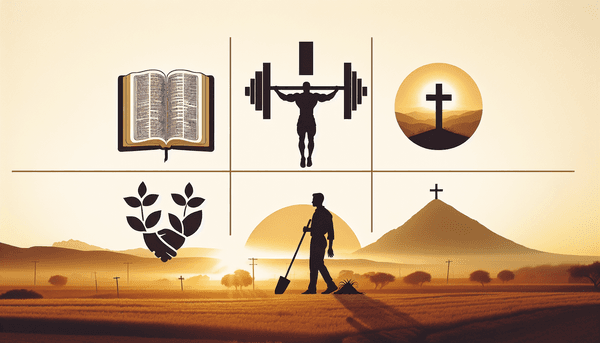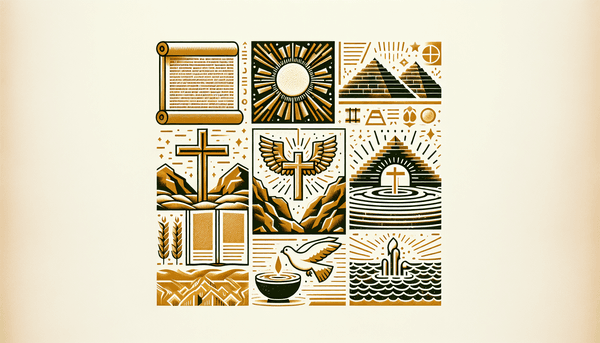Honoring the Temple of God through Physical Fitness
The apostle Paul reminds us in 1 Corinthians 6:19-20 that our bodies are temples of the Holy Spirit, a profound truth that extends to our physical health and well-being. The call to honor God with our bodies can be understood as an encouragement to maintain physical fitness. Engaging in activities like bodybuilding can be seen as an act of worship, a way to show gratitude for the wondrous creation that is the human body. Paul further emphasizes the need for discipline, stating that he 'strikes a blow to his body and makes it his slave' (1 Corinthians 9:27), highlighting the value of self-control in all areas, including fitness. By approaching bodybuilding with integrity and as a means to enhance our service to God, we not only honor our temple but also align our physical pursuits with our spiritual goals.
The Significance of the Holy Land in Christian Faith
The Holy Land holds an esteemed place in the hearts of believers, a land rich with historical and religious significance that has witnessed the unfolding of God's plan for humanity. It is within its borders that prophets walked, that Jesus was born, ministered, crucified, and resurrected. The Holy Land continues to inspire faith, inviting pilgrims to connect with the tangible reality of biblical stories. Its relevance extends beyond Christianity to Judaism and Islam, making it a region of profound interfaith importance. As we consider its centrality to our faith, we are reminded to 'pray for the peace of Jerusalem' (Psalm 122:6) and to cherish this land that continues to be a lamp to the feet of those who walk its sacred paths.
Conclusion
In weaving together the threads of biblical teachings on physical well-being, financial stewardship, and the Holy Land, we find a multifaceted approach to living a life that honors God. As we apply these scriptural principles to contemporary issues like bodybuilding and personal finance, we grow in understanding of how to steward our bodies and resources for His glory. The exploration of love and generosity through the biblical lens further enriches this discourse, offering insight into how these virtues can be expressed in our daily lives. The Holy Land serves as a poignant reminder of our faith's history and the enduring truth of God's Word. Let this exploration be an invitation to delve deeper into the wisdom of scripture and discover practical ways to integrate faith into every aspect of our lives.
FAQ
Q: What does the gospel preach about bodybuilding and working out?
A: While the gospel does not explicitly mention bodybuilding or working out, it teaches the importance of caring for our bodies as temples of the Holy Spirit, suggesting that physical fitness can be part of honoring God with our bodies.
Q: What is the explanation of Luke 16:1-13?
A: Luke 16:1-13 contains the parable of the shrewd manager, which encourages wise stewardship and integrity with our resources, emphasizing that how we manage earthly wealth can reflect our spiritual priorities.
Q: What is the significance of the Holy Land?
A: The Holy Land is significant as the geographical stage for many biblical events and as a spiritual destination for pilgrims, representing a physical connection to the stories and teachings of Christianity, Judaism, and Islam.
Q: How can we honor the temple given to us by God?
A: We can honor our bodies by maintaining physical health through exercise and nutrition, practicing self-control, and viewing our fitness efforts as a way to glorify God.






